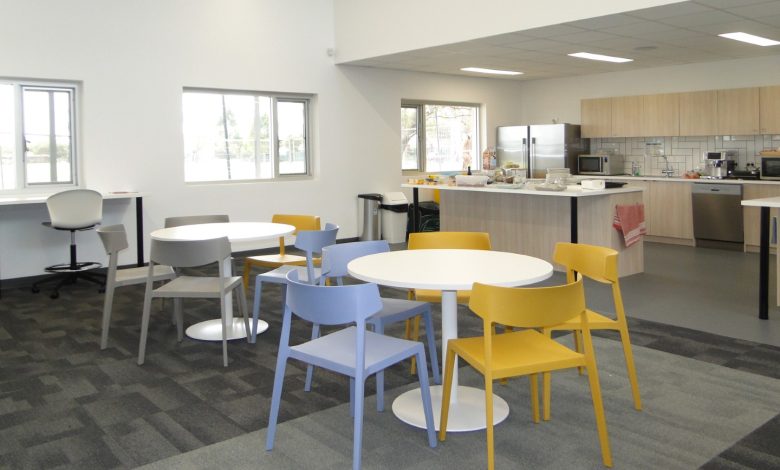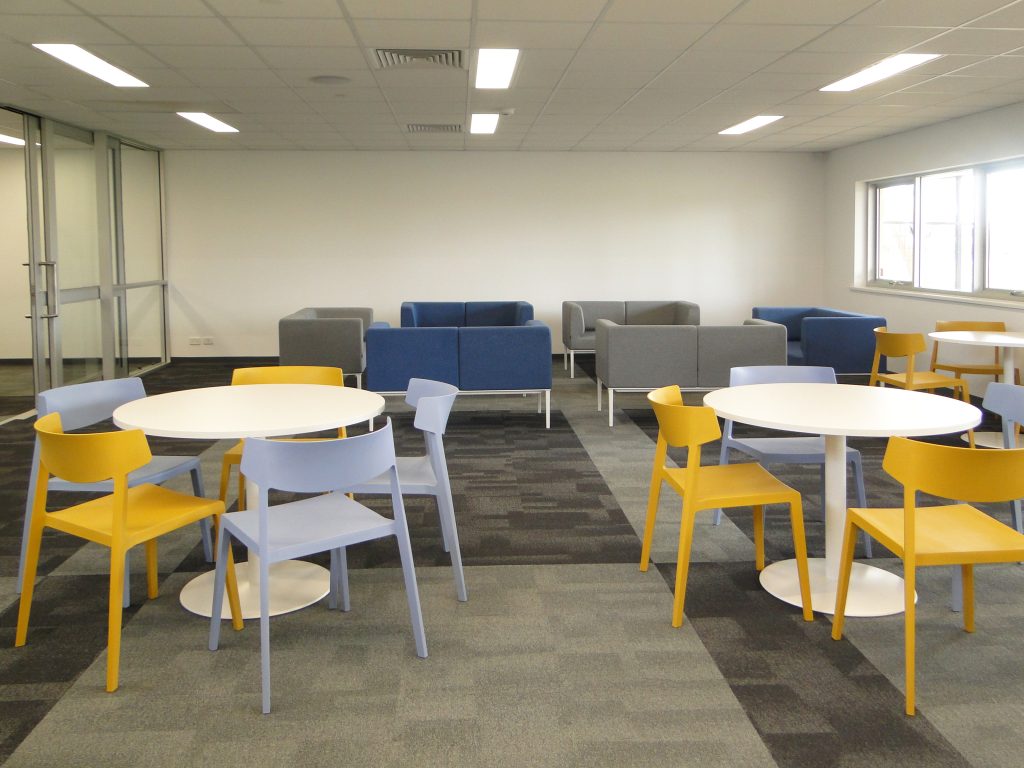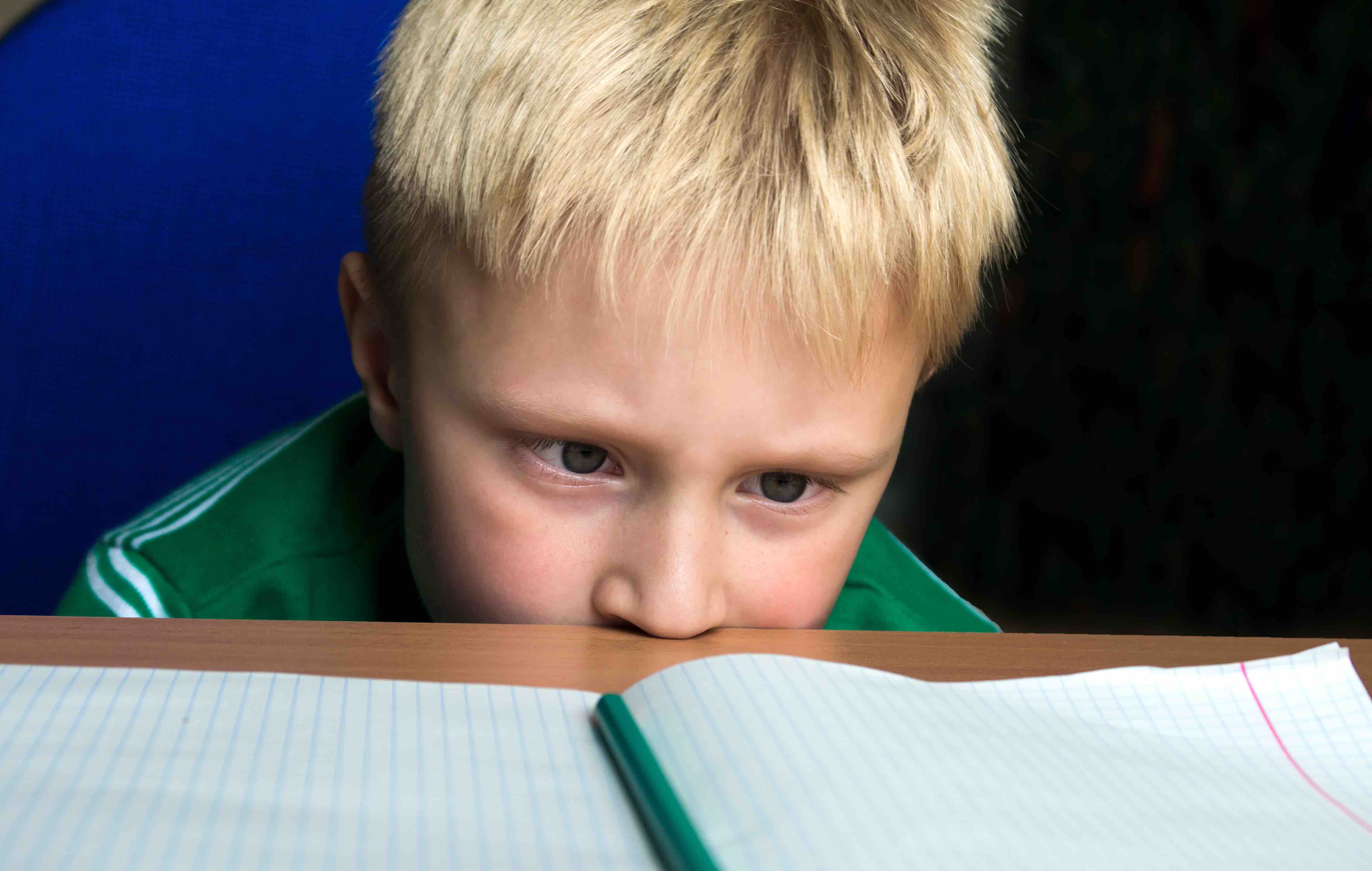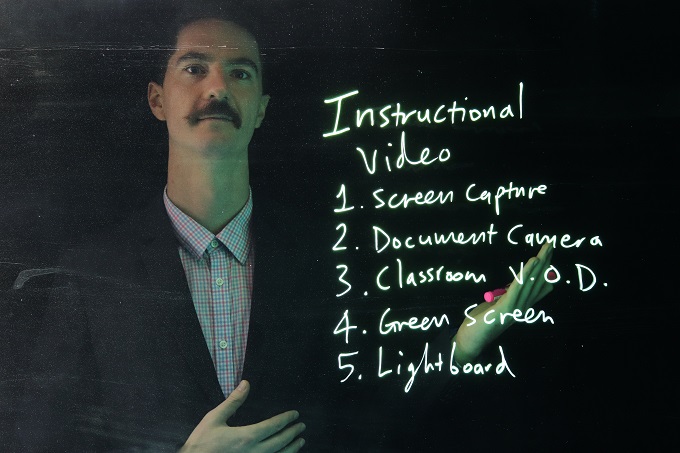
The staffroom is the chameleon of school spaces. One minute it’s a place to make a toasted sandwich, the next, a meeting room; it houses staff pigeonholes and correspondence, and also everyone’s coffee mug; celebrations occur here, as well as mentoring and team-building sessions, and sometimes even P&F meetings. How can you ensure your staffroom is set-up to accommodate all these functions?
Read the latest print edition of School News HERE
Storage and amenities
First and foremost, the staffroom provides a place to eat. Staff must have quick and easy access to cutlery and crockery, as well as washing up facilities. Ample bench space is necessary so that several staff members can prepare their meals at the same time.
For fast preparation of that all-important cup of tea or coffee, hot- and cold-water dispensers are invaluable. Systems can be integrated into the sink, or wall mounted. These units will also be well-used in summer, when the temperature is soaring, and staff need a cold drink in a hurry.
When planning storage for your staffroom, consider all the places storage solutions could be incorporated. Low cabinetry along walls that doubles as seating, cupboards in high spaces for long-term storage, as well as bookcases and credenzas throughout the space can all add extra storage. Wall hooks can provide a streamlined solution for storing hats, bags, coats and umbrellas.
To keep counters tidy, open storage or cupboards could be installed in kitchen islands and underneath benches. Wide, deep drawers can be useful for storing coffee mugs, and cupboards should also be available for staff to store food. Labelling drawers, cupboards, and shelves can help staff return items to the right place. Consideration should be given to people with additionally mobility requirements – can they safely access and use what they need in the staff kitchen?
Mobile caddies can be used in the staffroom to store stationery and staff items, allowing for secure storage and ease of access.
Tables and chairs
Flexible furniture, items on wheels and modular furniture that can be reconfigured will make your staffroom adaptable for any situation. Stackable furniture like chairs and trestle tables can be stored out of the way when not in use.
Tables and chairs for eating are a must, and high tables with stools will allow people working from the space to sit or stand as they choose. Soft, comfortable couches are important for staff hoping to relax, and introducing large cushions to the area can also increase seating, encouraging staff to sit on the floor.
Mobile teacher stations, which can combine a whiteboard, desk, and drawers will give staff a flexible place to work from, collaborate with team mates, and keep items organised.

Communication and acoustics
With the multitude of activities happening in the staffroom, it can get very noisy. Some attention to acoustics can help to remedy this.
Modern panel options can incorporate acoustic panelling, whiteboards and screens. Having these screens on castors so they are mobile means they can be moved around the staffroom as needed, and used to create zones within the space. Soft furnishings can help to reduce reverberation and decrease noise, while curtains, acoustic pinboards and wall panelling can also be used. Many of these solutions can be retrofitted.
From those in the know
Grace Misso, Business Development Executive at Resource Furniture said staffroom furniture should be versatile. “To support the multi-functionality of these spaces, incorporate a range of different furniture options that allow for a range of seating styles. For example, soft seating can be used in informal areas for both a group setting or individual use. Soft seating is the perfect addition to allow staff to relax and unwind or catch up with co-workers,” Ms Misso said.
“Bench height furniture is suitable for short term individual use such as meal breaks and individual privacy. It allows staff members to enjoy ‘me time’ without compromising on comfort or convenience.
“Mobile flip tables can be used for multi-functional meeting spaces such as small staff gatherings. They are easily reconfigured to suit the group size and can be packed away as required,” Ms Misso said. “Schools should also consider the size when choosing tables. It is ideal to be able to function as both a standalone desk and clustered together to create a larger meeting space.
“We recommend polypropylene chairs for kitchen spaces and eating areas as they are easy to clean, lightweight, and very easy to move around. Choose suitable fabrics that are easy to clean and withstand a staff room environment.”
This article was originally published in the Term 4 edition of School News. Read it online HERE.







